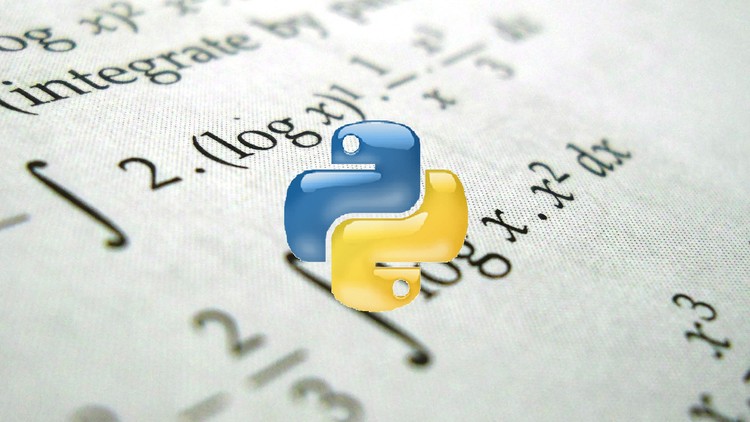Programming Numerical Methods in Python

Why take this course?
🎓 Course Title: Programming Numerical Methods in Python: A Practical Approach 🚀
Headline: Master the Art of Numerical Computation with Python! 💻
Unlock the Power of Numerical Methods with Python Programming
Many students encounter a common issue when studying Numerical Analysis: they learn about numerical methods in theory, but struggle to implement them effectively in code. They often rely on pre-written code snippets from textbooks or labs, which can hinder their understanding and ability to adapt these methods for new problems.
Our course, Programming Numerical Methods in Python, flips this script by focusing on the practical side of numerical programming. You'll learn how to program these methods from scratch, ensuring that you not only understand the underlying theory but can also implement solutions efficiently and with the right level of accuracy.
Why Programming Numerical Methods in Python? 🐍
Python stands out as an exceptional educational tool for learning programming due to its simplicity and flexibility. It's no wonder that it has become a staple in scientific, engineering, and data analysis fields. With libraries like NumPy, SciPy, and matplotlib at your disposal, Python offers a robust framework for numerical computations and data visualization.
In this course, we'll dive deep into Python's capabilities with these libraries to perform array manipulation and plotting tasks that are essential in numerical analysis. You'll gain hands-on experience by applying Python programming to solve real-world problems.
Course Overview:
In this course, Programming Numerical Methods in Python, you will:
🔹 Implement Roots of High-Degree Equations: Learn algorithms for finding roots of complex equations and how to implement them effectively.
🔹 Master Interpolation and Curve Fitting: Understand different interpolation methods and practice curve fitting techniques.
🔹 Explore Numerical Differentiation and Integration: Discover various numerical techniques for calculating derivatives and integrals, and learn how to apply them in Python.
🔹 Solve Systems of Linear Equations: Grasp methods for solving linear systems and implement these solutions in your Python code.
🔹 Analyze Ordinary Differential Equations (ODEs): Learn how to model and solve ODEs using Python's powerful ODE solvers from the SciPy library.
By the end of this course, you will be equipped with the skills to program your own numerical methods in Python, using both basic programming constructs and advanced library functions. You'll have a solid understanding of how these methods can be applied to real-world problems, making you a proficient numerical analyst and a versatile Python programmer.
Enroll now and take the first step towards mastering the numerical side of Python programming! 🧮✨
Course Gallery




Loading charts...
Comidoc Review
Our Verdict
Programming Numerical Methods in Python provides an accessible deep dive into understanding numerical approaches with clear, well-organized content and practical Python implementations. A few rough edges around pacing and the limited scope hold it back from true greatness—still, it remains a compelling option for those seeking to bolster their skills.
What We Liked
- Comprehensive coverage of numerical methods and their Python implementations, making it a valuable resource for both beginners and those seeking to refresh their knowledge
- Instructor's clear explanation of mathematical concepts along with the code, aiding understanding of how the math works in practice
- The six topics progress from easier to harder, enabling learners to gradually build on and apply their new skills in a systematic manner
- Well-structured content, providing a solid foundation for Python-based scientific computing
Potential Drawbacks
- Instructional style might benefit from some tightening up, as some testimonials indicate slow pace or overly lengthy explanations
- More advanced students might desire additional information about limitations and optimizations in the methods presented
- Limited scope of topics could leave learners desiring deeper coverage or exploration of more complicated problems